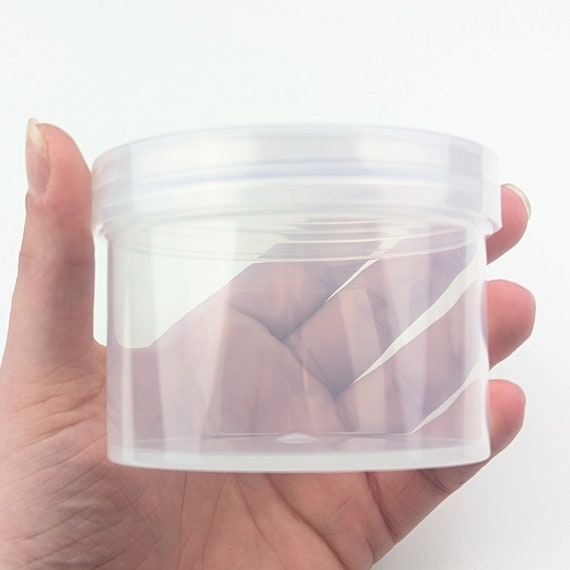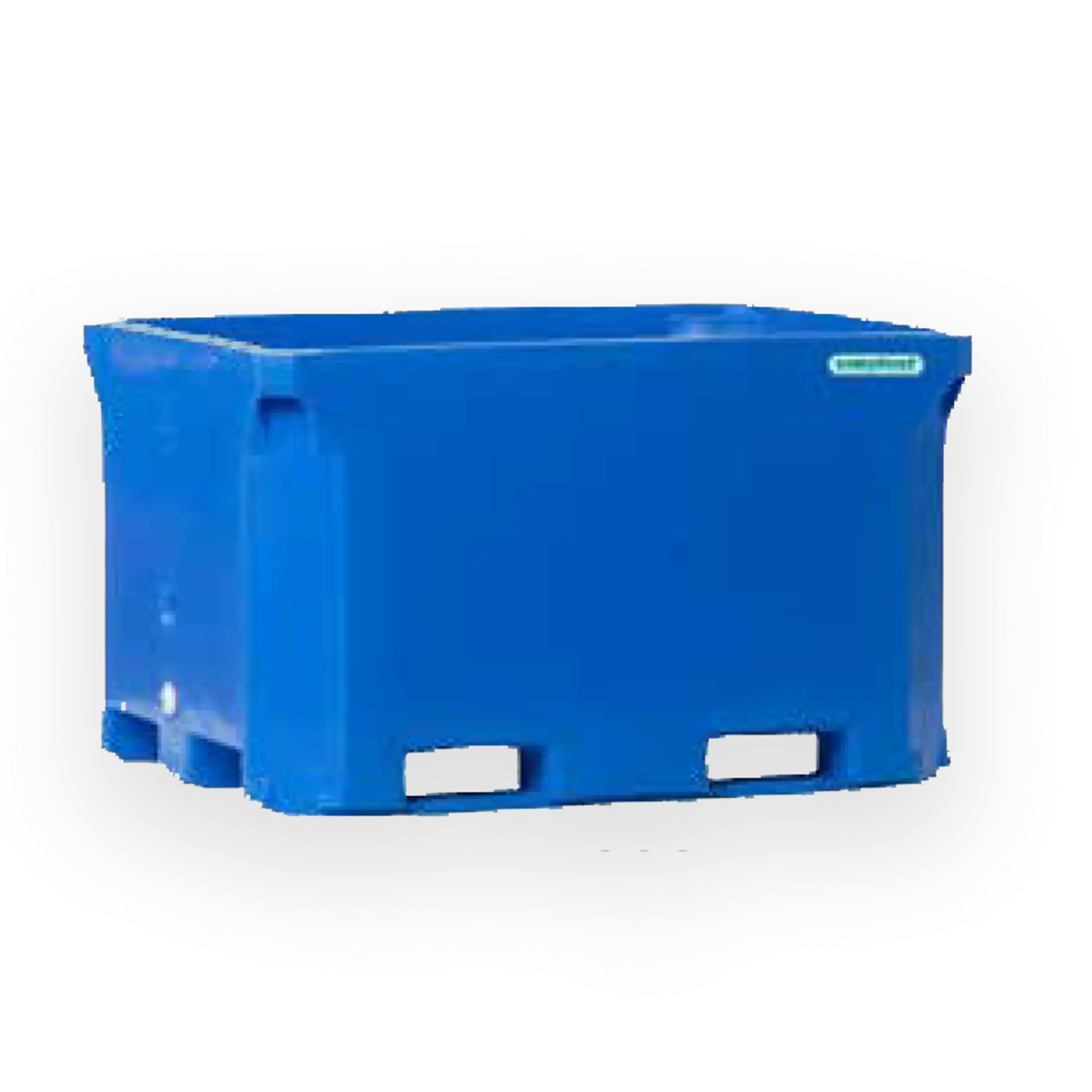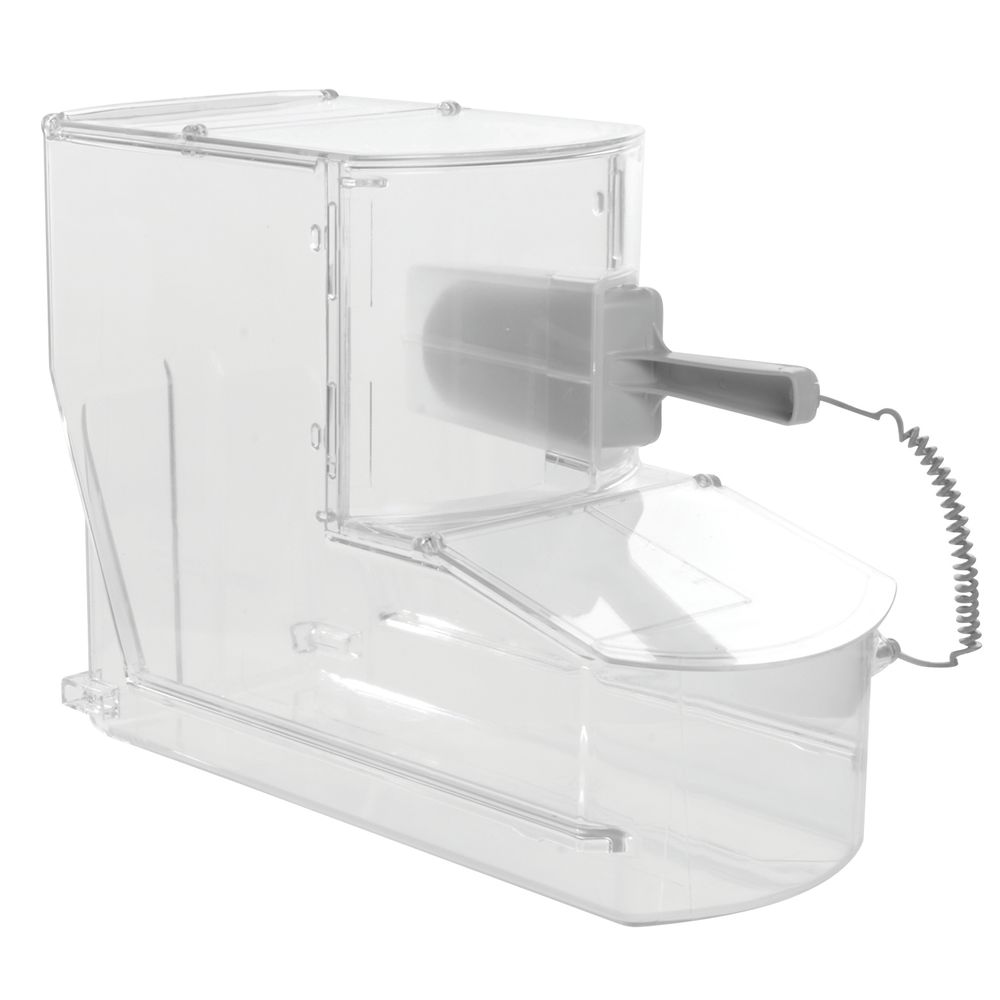How to select plastic bulk containers that match your business requirements
Wiki Article
A Comprehensive Overview to the Various Sorts Of Mass Plastic Containers Available Today
Bulk plastic containers play an essential duty in different industries, providing options for storage and transport. Their diverse types cater to different requirements, from stiff alternatives for strong materials to flexible containers suiting various forms. Each type provides distinctive benefits, making it important to understand their applications and functions. As industries evolve, so do the needs for effective container remedies. What factors should one consider when picking the best bulk container?Review of Mass Plastic Containers

Sorts Of Mass Plastic Containers
Mass plastic containers been available in numerous kinds, each matched to specific applications. Rigid mass containers, adaptable mass containers, and intermediate bulk containers represent the main classifications, each offering one-of-a-kind benefits. Understanding these types is necessary for picking the right container for transferring and keeping materials.
Stiff Bulk Containers
Stiff bulk containers are important for reliable storage space and transport of different products throughout sectors. These containers are typically constructed from resilient plastics, allowing them to stand up to rough handling and environmental conditions. They are available in different shapes and sizes, consisting of bins, drums, and totes, making them suitable for storing everything from granular substances to liquids. Stiff containers usually include reinforced walls and safe and secure lids, making sure the contents stay secured throughout transportation. Their stackable design optimizes storage space, making them excellent for warehouses and manufacturing facilities. In addition, several rigid bulk containers are reusable and recyclable, contributing to sustainability initiatives. In general, their robustness and versatility make inflexible mass containers a vital part in supply chain operations.Flexible Mass Containers
Adaptable bulk containers, commonly referred to as flexible intermediate bulk containers (FIBCs), work as a flexible service for saving a range and transporting of completely dry products. These containers are usually made from woven polypropylene and are designed to be light-weight yet solid, enabling reliable handling and stacking. Their versatility allows them to fit different sizes and shapes, making them ideal for items ranging from grains to chemicals. FIBCs can be furnished with attributes such as spouts for easy filling and discharge, as well as safety coatings for boosted longevity. Furthermore, they are recyclable and recyclable, adding to sustainable methods in sectors like agriculture, food processing, and building and construction. In general, versatile mass containers offer a reliable and affordable choice for bulk product management.Intermediate Mass Containers
Intermediate bulk containers (IBCs) are vital for the efficient transport and storage space of fluids and granular materials throughout numerous sectors. These containers generally have a capability varying from 275 to 330 gallons and are designed for very easy managing and stacking. Made from durable materials like high-density polyethylene or steel, IBCs offer exceptional security against contamination and environmental aspects. Their layout consists of attributes such as an integrated pallet for forklift access and a removable top for easy filling and cleaning. IBCs are commonly utilized in chemical, food, and pharmaceutical markets, ensuring compliance with safety regulations. Their flexibility and reusability make them an economical option for bulk storage and transportation, adding to provide chain effectiveness and sustainability.Features and Advantages of Mass Plastic Containers
Bulk plastic containers are vital tools in various sectors, supplying a mix of sturdiness and functionality. These containers are constructed from high-quality products, making them immune to effects, chemicals, and ecological variables. This toughness assurances product safety during storage space and transportation.In addition, bulk plastic containers are lightweight, promoting convenience of decreasing and dealing with shipping costs. Their stackable design takes full advantage of storage space effectiveness, enabling maximized stockroom area. Numerous versions include safe lids or closures, offering an airtight seal that stops and preserves materials contamination.
Furthermore, mass plastic containers are recyclable and often recyclable, adding to sustainable methods. Their adaptability permits a variety of applications, from food storage space to industrial usage, boosting their worth across fields. Companies gain from the lengthy life-span and low maintenance needs of these containers, making them an economical option for both short-term and long-term demands.
Industries That Use Bulk Plastic Containers
Different markets profit from making use of bulk plastic containers, each leveraging their distinct residential or commercial properties for particular applications. The food and beverage industry depends on these containers for safe storage space and transportation of products, while the chemical manufacturing field utilizes them for dealing with harmful products. In addition, the pharmaceutical circulation requires stress the importance of toughness and sanitation in product packaging remedies.Food and Drink Sector
As the need for efficient and secure storage space services remains to rise, the food and drink market progressively depends on bulk plastic containers for their operational needs. These containers offer robust, light-weight, and versatile options for saving active ingredients, completed products, and waste products. Made from food-grade products, they ensure compliance with health and wellness standards. Various designs, such as stackable bins and lug boxes, optimize room throughout transportation and storage, enhancing logistical efficiency. Additionally, the transparency of some bulk containers enables simple supply monitoring, reducing the risk of putridity. With the market's focus on sustainability, numerous suppliers are currently using recyclable and recyclable options, straightening with environmentally friendly methods while meeting the high needs of food security and health.
Chemical Production Market
The chemical production market depends heavily on bulk plastic containers for the safe and reliable storage of resources, intermediates, and completed items. These containers are designed to withstand various chemicals, making certain that harmful materials do not leak or break down the container itself. Usual kinds include high-density polyethylene (HDPE) and polypropylene containers, which offer excellent chemical resistance and durability. Their lightweight nature and stackable design assist in transport and storage space, enhancing room in making centers. Furthermore, several mass plastic containers include features such as tamper-evident seals and easy-to-read labeling, enhancing safety and security and compliance with sector regulations. Generally, mass plastic containers are essential to the chemical manufacturing procedure, giving trustworthy remedies for dealing with varied materials.Pharmaceutical Circulation Demands
Drug distribution counts on mass plastic containers to satisfy rigorous safety and regulatory requirements. These containers are vital for delivering and saving a selection of pharmaceutical items, consisting of energetic pharmaceutical components (APIs) and completed medications. Their design guarantees defense versus contamination, light, and wetness, maintaining the integrity of sensitive materials. Additionally, bulk plastic containers are compliant with sector standards such as Great Production Practices (GMP) and are usually made from products that are FDA-approved. Making use of these containers improves performance in the supply chain, permitting for risk-free, massive distribution while lessening waste. Business in the pharmaceutical industry prioritize the use of durable, leak-proof, and tamper-evident containers to assure item security and quality throughout the logistics process.Factors to consider for Picking the Right Container
When choosing the suitable mass plastic container, different elements must be meticulously evaluated to guarantee excellent performance and safety. The nature of the products to be kept is extremely important; compatibility with the container's product can affect integrity and security. plastic bulk containers. Additionally, the container's shapes and size must straighten with the storage and transport requirements, guaranteeing reliable area utilizationTons capacity is another essential consideration, as it needs to suit the weight of materials without danger of damage or failing. The style features, such as airing vent or lids, can i was reading this affect functionality and accessibility. Compliance with industry policies is necessary, especially in markets like pharmaceuticals, where safety and security requirements are strict.
The expected life expectancy and longevity of the container ought to be analyzed to validate it meets the operational needs without regular substitute. By reviewing these variables, one can select the most suitable bulk plastic container for certain applications.
Ecological Influence and Sustainability
As businesses increasingly prioritize sustainability, the environmental impact of bulk plastic containers has come under analysis. These containers, often made from materials such as polyethylene or polypropylene, contribute greatly to plastic waste if not taken care of effectively. Their production entails the intake of fossil gas, which can bring about raised greenhouse gas exhausts. Innovations in recycling innovation and the development of biodegradable alternatives are aiding to minimize these problems.In addition, lots of makers are embracing practices that stress using recycled materials, thereby lowering the need for virgin plastics. The toughness of bulk plastic containers additionally contributes; they are designed to be recycled several times, which can lessen their general environmental impact when contrasted to single-use choices. Ultimately, the market encounters the challenge of stabilizing functionality with eco-friendly obligation, making sustainable techniques important for the future of mass plastic containers.
Best Practices for Storage Space and Transportation
Reliable storage and transport of bulk plastic containers significantly influence both operational efficiency and sustainability. To make the most of room, organizations need to pile containers safely, ensuring security and preventing damage. Appropriate labeling is vital for simple recognition, which simplifies access procedures. Additionally, preserving a orderly and tidy storage area decreases the risk of contamination and improves security.For transportation, choosing the right car is essential; containers should be secured to prevent moving throughout transportation. Firms should also consider utilizing pallets to helpful hints assist in less complicated loading and dumping. Normal inspections of containers for deterioration can avoid expensive replacements.
Temperature control is one more essential element, as extreme conditions can compromise the integrity of the plastic. Training workers on finest techniques for managing and transport assurances compliance and promotes a society of security. By executing these finest techniques, organizations can boost their functional effectiveness while adding to ecological sustainability.
Often Asked Concerns
Exactly how Do I Clean Mass Plastic Containers Successfully?
To tidy mass plastic containers successfully, one ought to rinse them with cozy water, utilize a mild detergent and scrub with a soft brush. Rinse extensively, then allow to air completely dry entirely before storage space or reuse.What Is the Life-span of Mass Plastic Containers?
The life-span of mass plastic containers commonly varies from 5 to ten years, depending on the material, use, and environmental problems. Appropriate upkeep and storage space can significantly expand their functionality and durability gradually.Can Bulk Plastic Containers Be Customized?

Do Mass Plastic Containers Have Guarantee Options?

Are There Rules for Using Bulk Plastic Containers?
Yes, policies exist for making use of mass plastic containers, mostly focused on safety, ecological impact, and product compliance. These policies guarantee that containers satisfy industry requirements and are ideal for transferring numerous materials securely and efficiently.Rigid mass containers, flexible mass containers, and intermediate mass containers stand for the main classifications, each offering unique benefits. Versatile bulk containers, frequently referred to as adaptable intermediate mass containers (FIBCs), serve as a functional option for carrying and storing a selection of dry materials. The chemical production industry counts navigate to this website heavily on mass plastic containers for the effective and safe storage space of raw materials, intermediates, and completed items. plastic bulk containers. These containers are designed to hold up against different chemicals, ensuring that harmful materials do not leak or weaken the container itself. Furthermore, mass plastic containers are compliant with market criteria such as Good Production Practices (GMP) and are often made from materials that are FDA-approved
Report this wiki page